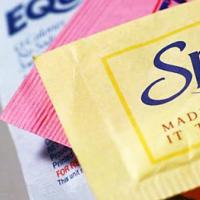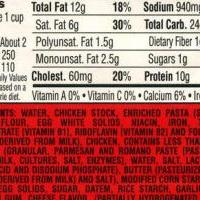Artificial Sweeteners and Overeating

The sugar-free business is booming: Sales are up 24% since 1999, with sugarless gum and soda the two top sellers, according to data tracker Mintel. Americans spent an estimated $8.8 billion on low-sugar products last year, reports ACNielsen, and many of these were sweetened with additives such as sucralose (Splenda), aspartame (NutraSweet and Equal), or saccharin (Sweet'n Low).
Prevention magazine recently compiled a report on the effects of artificial sweeteners. The results were not encouraging. Ideally, artificial sweeteners ought to fill a sugar craving , make you feel full, and help you lose weight. But that’s not how they work. A 2004 Purdue University study found that rats that drank liquids artificially sweetened with saccharin ate more food than those that had been fed sugar-sweetened liquids. Researchers say artificial sweeteners may interfere with the body's natural ability to count calories based on a food's sweetness and make people prone to overindulging in other sweet foods and beverages
Humans who chug sodas with these sweeteners may react by overeating, too: Your risk of being overweight rises 65% for every diet soda you down each day, according to a study presented in June 2005 at the American Diabetes Association meeting.
Artificial sweeteners may make you feel extra hungry and fool your body into thinking sweet foods have fewer calories, so you unconsciously munch on more of them, says Sharon Fowler, MPH, a faculty associate in the division of clinical epidemiology at the University of Texas Health Science Center at San Antonio.
-
Linguine Stew
1 m
-
Low Carb Diets - But Your Body Needs Carbs To Function Properly
Low carb diets have hit the news over the last few years because of t
-
What Is Ketone
What is ketone-based dietary theory all about? Well, f
-
Low Carb Diet Requirements & How They Work
A low carb diet, also known as a low carbohydrate diet, is a diet pro
-
Cant Lose Weight? Follow These Great Tips!
With the myriad of weight loss advice available, it is no wonder pe
-
What is the Glycemic Index?
The
- DON'T MISS
- SANTA GOES LOW CARB!
- Still Eat Conventional Meat Or Poultry? Preservatives, Antimicrobials, Antifungals, And Viral Sprays
- Low-Carb Diets and the Food Pyramid
- Healthy Eating At Fast Food Places - Are You Kidding Me?
- Picking Out The Correct Diet Needs Guidelines
- The Most Effective Diet And The Way To Find It
- Why Calories Loss Counts
- Latvian Meatloaf
- Having The The Best Results From Low Carb Diets
- Sausage Egg McMuffin




